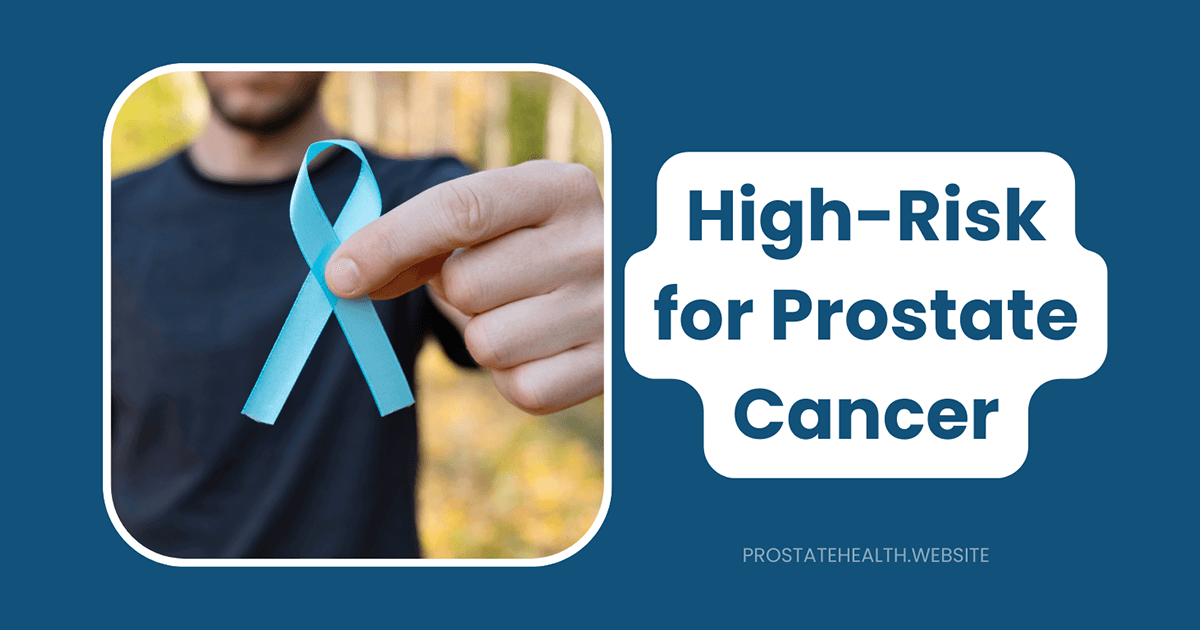Talking to Your Doctor About Prostate Screening: Questions to Ask

When my doctor first brought up prostate cancer screening at my annual physical, I froze. Like many men, I found myself unprepared for this important conversation. I didn’t know what questions to ask, what factors to consider, or how to make sense of the complex information being presented. I left the appointment feeling uncertain about my decision.
That experience taught me an important lesson: being prepared for this conversation can make all the difference. Prostate cancer screening decisions aren’t one-size-fits-all, and having a productive discussion with your healthcare provider is essential for making choices aligned with your values and circumstances.
Whether you’re approaching your first screening conversation or revisiting the topic after previous discussions, this guide will help you navigate this crucial conversation with confidence and clarity.
Why the Conversation Matters
Before diving into specific questions, it’s worth understanding why this discussion is so important:
Shared Decision-Making Is the Standard of Care
Major medical organizations, including the American Urological Association, the American Cancer Society, and the U.S. Preventive Services Task Force, all emphasize the importance of shared decision-making for prostate cancer screening. This approach recognizes that screening involves weighing personal values against potential benefits and harms.
Dr. H. Ballentine Carter of Johns Hopkins Medicine explains: “The decision to undergo prostate cancer screening is preference-sensitive, meaning it should reflect a man’s personal values regarding the benefits and harms. There’s no universally ‘right’ choice—only the choice that’s right for each individual.”
The Decision Has Long-Term Implications
A single conversation about prostate screening can impact your healthcare for decades. Research shows that decisions about PSA testing may affect your medical care annually for up to 30 years. Taking the time to have a thorough discussion now can save confusion, anxiety, and potentially unnecessary procedures later.
Your Input Matters
Your personal values, risk factors, and preferences should guide this decision. Without your active participation in the conversation, your doctor may make assumptions about what matters most to you.
Setting the Stage for a Productive Conversation
To make the most of your appointment, consider these preparatory steps:
1. Schedule Dedicated Time
If possible, schedule an appointment specifically to discuss prostate cancer screening rather than trying to address it during a routine check-up. This ensures you’ll have adequate time for a thorough conversation.
2. Bring a Companion
Consider bringing a trusted friend or family member to your appointment. They can take notes, help you remember key points, and provide support during the discussion.
3. Do Some Preliminary Research
While your doctor should explain the basics of prostate cancer screening, having some background knowledge can help you ask more informed questions. The resources section at the end of this article provides reliable sources of information.
4. Reflect on Your Values
Before your appointment, think about what matters most to you regarding your health. Are you someone who wants to know about any potential health issue, even if it might never cause problems? Or do you prefer to avoid medical interventions unless absolutely necessary?
Essential Questions to Ask Your Doctor
The following questions are organized into categories to help you cover all important aspects of the screening decision. You don’t need to ask every question—focus on those most relevant to your situation and concerns.
Understanding Your Personal Risk
- “What is my risk for developing prostate cancer based on my age, race, and family history?”
Risk varies significantly based on these factors. African American men have approximately double the risk of developing and dying from prostate cancer compared to other ethnic groups. Men with a first-degree relative (father or brother) with prostate cancer have a 2-3 times higher risk. - “How does my risk compare to the average man my age?”
This helps contextualize your personal risk level. - “Are there any other risk factors in my medical history or lifestyle that affect my prostate cancer risk?”
Certain medical conditions and lifestyle factors may influence risk. - “Should I consider genetic testing to better understand my prostate cancer risk?”
For men with strong family histories, genetic testing might provide additional information.
Understanding the Screening Process
- “What does prostate cancer screening involve? Is it just a PSA test, or do you recommend other tests as well?”
Screening typically involves a PSA blood test and sometimes a digital rectal examination (DRE). - “What exactly does the PSA test measure, and what are its limitations?”
Understanding that PSA is prostate-specific but not cancer-specific helps interpret results. - “What PSA level would you consider concerning for someone of my age and risk profile?”
PSA thresholds often vary by age and other factors. - “How often do you recommend screening if I choose to proceed?”
Frequency recommendations vary based on risk factors and previous results. - “Are there any preparations I should make before a PSA test to ensure accurate results?”
Certain activities can temporarily affect PSA levels.
Benefits and Harms of Screening
- “What are the potential benefits of prostate cancer screening in my case?”
Benefits typically include the possibility of early detection and more treatment options. - “What are the potential harms or downsides of screening?”
Potential harms include false positives, overdiagnosis, anxiety, and unnecessary procedures. - “Can you help me understand the likelihood of these benefits and harms?”
Understanding the probabilities helps with decision-making. - “What happens if my PSA level is elevated? What additional tests might I need?”
This helps prepare for potential next steps. - “How likely is it that screening would detect a cancer that would never cause problems in my lifetime?”
Overdiagnosis is a significant concern in prostate cancer screening.
Your Doctor’s Perspective
- “Based on my personal situation, what would you recommend regarding prostate cancer screening?”
While the decision is ultimately yours, your doctor’s professional opinion can be valuable. - “If I were your family member with my risk profile, what would you advise?”
This question often elicits a more personal perspective. - “What approach do most of your patients in my situation choose?”
Understanding common choices can provide context, though your decision should be personalized.
Alternatives and Next Steps
- “Are there any newer screening tests or approaches I should consider beyond traditional PSA testing?”
Emerging options like the 4Kscore, prostate health index (PHI), or MRI-based screening might be relevant. - “If I choose not to be screened now, what symptoms should I watch for that might indicate a prostate problem?”
Understanding warning signs helps with informed monitoring. - “Can we revisit this decision in the future? How often should we discuss screening?”
Screening decisions can be reconsidered as your health, preferences, or available evidence changes.
Special Considerations for Different Age Groups
The screening conversation varies depending on your age. Here are additional questions relevant to specific age groups:
For Men Under 50
- “Given my age, is prostate cancer screening recommended at this time?”
Most guidelines don’t recommend routine screening before age 50 for average-risk men. - “Since I have risk factors (African American heritage/family history), should I start screening earlier than average-risk men?”
Earlier screening (age 40-45) may be appropriate for high-risk individuals. - “What would a baseline PSA test at my age tell us, and would it be valuable?”
Some doctors recommend a baseline PSA for comparison with future tests.
For Men 50-69
- “In this age range, how do the benefits and harms of screening balance out?”
This is the age group where evidence suggests the most favorable balance between benefits and harms. - “If I choose screening and have normal results, how frequently should I be retested?”
Retesting intervals may range from annually to every 2-4 years depending on PSA levels. - “How might my other health conditions affect the potential benefits of prostate cancer screening?”
Competing health risks may influence the value of screening.
For Men 70 and Older
- “Given my age and overall health, would you still recommend prostate cancer screening?”
Most guidelines recommend against routine screening after age 70, but individual factors matter. - “How does my life expectancy affect the potential benefit of screening?”
Screening benefits typically emerge 10+ years after testing, so life expectancy is an important consideration. - “If I’ve been screened regularly with normal results, is there a point at which I can safely discontinue screening?”
Men with consistently low PSA levels may have very low risk of developing significant prostate cancer.
Navigating Common Challenges in the Conversation
Even with preparation, certain challenges may arise during your discussion. Here’s how to address them:
If Your Doctor Seems Rushed
- Say: “I understand you’re busy, but this decision is important to me. Could we schedule a follow-up appointment to discuss this more thoroughly?”
If Technical Terms Are Confusing
- Say: “Could you explain that in simpler terms? I want to make sure I fully understand before making a decision.”
If You Feel Pressured Toward a Particular Decision
- Say: “I appreciate your recommendation, but I’d like to understand all my options before deciding. Can you help me understand the pros and cons of each approach?”
If You Need More Information
- Say: “Is there any written information or resources you can provide to help me think about this decision?”
The Ask-Tell-Ask Approach: A Framework for Effective Communication
Healthcare providers increasingly use the “Ask-Tell-Ask” approach for shared decision-making conversations. Understanding this framework can help you participate more effectively:
First “Ask”: Your Doctor Assesses Your Knowledge and Concerns
Your doctor might begin by asking what you already know about prostate cancer screening and what concerns you have. Be honest about your current understanding and specific worries.
“Tell”: Your Doctor Provides Tailored Information
Based on your response, your doctor should provide information that addresses your specific knowledge gaps and concerns. This is your opportunity to listen carefully and ask for clarification on anything that’s unclear.
Second “Ask”: Confirming Understanding and Making a Decision
Your doctor should check whether the information provided was helpful and whether you’re ready to make a decision. If not, this is your chance to ask additional questions.
Dr. Michael Barry, a pioneer in shared decision-making research, notes: “The most effective screening discussions are those where both the patient and provider actively participate. The Ask-Tell-Ask approach helps ensure that the conversation addresses what matters most to the individual patient.”
After the Conversation: Next Steps
Once you’ve had a thorough discussion with your doctor, consider these follow-up steps:
1. Reflect on the Information
Take time to process what you’ve learned and how it aligns with your values and preferences. There’s rarely a need to decide immediately unless your doctor has identified specific concerns.
2. Discuss with Trusted Others
Talking through your options with a spouse, family member, or friend can help clarify your thoughts and ensure you’ve considered all relevant factors.
3. Document Your Decision
Whether you choose to proceed with screening or not, make note of your decision and the factors that influenced it. This can be helpful for future discussions.
4. Schedule Follow-Up as Appropriate
If you decide to be screened, ensure you understand when and how to get your results. If you decide against screening, clarify when you should revisit the decision.
Real Conversations: Examples from Practice
To illustrate effective screening discussions, consider these abbreviated examples of productive conversations:
Example 1: Average-Risk Man, Age 55
Patient: “I’ve heard about prostate cancer screening but don’t know much about it. What should I be considering?”
Doctor: “At 55, this is a good time to discuss screening. The main benefit is potentially finding cancer early when it’s more treatable. The main downsides include possible false alarms leading to unnecessary biopsies, and sometimes finding slow-growing cancers that would never have caused problems. Given your average risk profile, this is a preference-sensitive decision. What concerns you most about this choice?”
Patient: “I’m worried about missing a serious cancer, but I also don’t want unnecessary procedures.”
Doctor: “That’s a common and reasonable concern. The PSA test can help detect cancer early, but it’s not perfect. About 70% of men with elevated PSA don’t actually have cancer when biopsied. Would it help to review some numbers about how many men benefit and how many experience downsides?”
Example 2: High-Risk Man, Age 45
Patient: “My father had prostate cancer at 60, and I know African American men are at higher risk. Should I start screening now at 45?”
Doctor: “Yes, given your family history and African American heritage, guidelines suggest considering screening starting at age 45. Your risk is higher than average, which shifts the balance somewhat toward the benefits of screening. However, the potential downsides still exist, including false positives and overdiagnosis. Let’s talk about what matters most to you in making this decision.”
Conclusion: Empowering Yourself Through Conversation
The discussion about prostate cancer screening is one of the most important health conversations men will have with their doctors. By preparing thoughtful questions, actively participating in the discussion, and ensuring your values guide the decision, you can make choices that align with your personal health goals.
Remember that there is no universally “right” decision about prostate cancer screening—only the decision that’s right for you based on your unique circumstances, values, and preferences. A high-quality conversation with your healthcare provider is the foundation for making that decision.
Whether you ultimately choose to undergo screening or not, what matters most is that your decision is informed, values-based, and made in partnership with your healthcare provider.
Resources for Further Information:
- American Cancer Society
- Prostate Cancer Foundation
- ZERO – The End of Prostate Cancer
- Centers for Disease Control and Prevention
- U.S. Preventive Services Task Force






